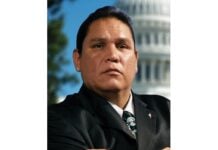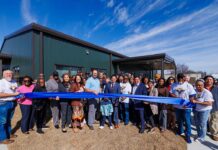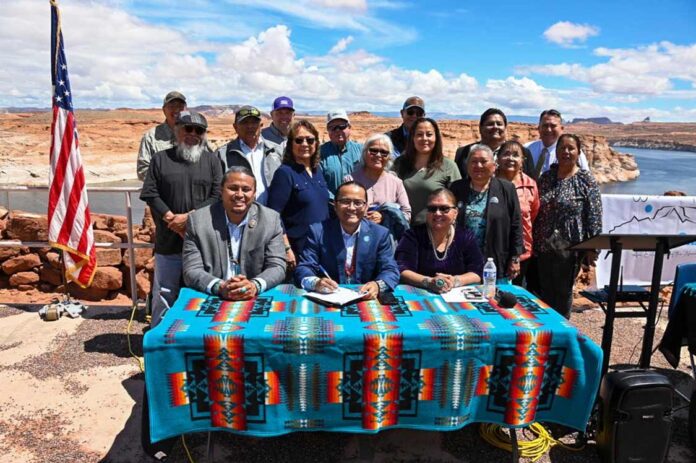LECHEE, AZ – The 25th Navajo Nation Council joined chapter officials, engineers, and local residents to celebrate the launch of the LeChee Water System Improvement Project, a $43 million initiative to deliver clean, reliable water to the LeChee Chapter and surrounding communities. Council Delegates Helena Nez Begay and Casey Allen Johnson were among the leaders present at the signing ceremony, alongside President Dr. Buu Nygren, Natural Resources Director Mike Halona, and Water Resources Manager Jason John.
“This was never just about water,” said Delegate Begay. “It was about honoring the promises our elders carried. It was about building a future where our children do not have to haul water just to cook or bathe. I pushed for this project because I lived this struggle, and I know the strength of our people deserves better.”
The project repurposes Lake Powell’s water intake from the former Navajo Generating Station (NGS), now owned by the Navajo Nation, to increase annual water capacity. Phase 1 construction includes a new membrane water treatment plant, pump stations, wastewater systems, storage tanks, and 31,000 feet of pipeline connecting LeChee to a sustainable water supply.
“This water project will create opportunity for our Western Agency,” said Delegate Johnson. “It will provide access to clean drinking water to our rural western communities who need running water and it will help in economic growth within the Western Agency. I am thankful for those who are involved in this project and I’m looking forward for the future of our people.”
Long dependent on Page’s water infrastructure, LeChee’s push for independence began over 20 years ago. The Western Navajo Pipeline legislation, passed by the 24th Navajo Nation Council and signed into law in 2021 by former Navajo Nation President Jonathan Nez, helped secure funding and momentum for the project.
Beyond meeting basic needs, the project is expected to support economic development and prepare for a proposed regional pipeline tied to federal water rights legislation now before Congress. With leadership united and construction underway, the LeChee Water System marks a turning point toward self-sufficiency and opportunity for the Diné people within the Western Agency.


















































